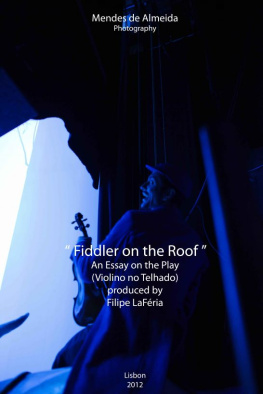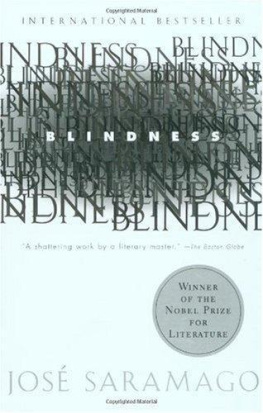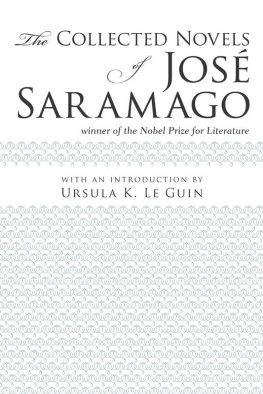Lastarria Jose Victorino - Literary Memoirs
Here you can read online Lastarria Jose Victorino - Literary Memoirs full text of the book (entire story) in english for free. Download pdf and epub, get meaning, cover and reviews about this ebook. City: USA, year: 2000, publisher: Oxford University Press, genre: Politics. Description of the work, (preface) as well as reviews are available. Best literature library LitArk.com created for fans of good reading and offers a wide selection of genres:
Romance novel
Science fiction
Adventure
Detective
Science
History
Home and family
Prose
Art
Politics
Computer
Non-fiction
Religion
Business
Children
Humor
Choose a favorite category and find really read worthwhile books. Enjoy immersion in the world of imagination, feel the emotions of the characters or learn something new for yourself, make an fascinating discovery.

- Book:Literary Memoirs
- Author:
- Publisher:Oxford University Press
- Genre:
- Year:2000
- City:USA
- Rating:5 / 5
- Favourites:Add to favourites
- Your mark:
- 100
- 1
- 2
- 3
- 4
- 5
Literary Memoirs: summary, description and annotation
We offer to read an annotation, description, summary or preface (depends on what the author of the book "Literary Memoirs" wrote himself). If you haven't found the necessary information about the book — write in the comments, we will try to find it.
Literary Memoirs — read online for free the complete book (whole text) full work
Below is the text of the book, divided by pages. System saving the place of the last page read, allows you to conveniently read the book "Literary Memoirs" online for free, without having to search again every time where you left off. Put a bookmark, and you can go to the page where you finished reading at any time.
Font size:
Interval:
Bookmark:
LITERARY MEMOIRS
LIBRARY OF LATIN AMERICA
General Editor
Jean Franco
Series Editor for Brazil
Richard Graham, with the assistance of Alfredo Bosi
Editorial Board
Tulio Halpern Donghi
Ivn Jaksi
Naomi Lindstrom
Eduardo Lozano
Francine Masiello
by
JOS VICTORINO LASTARRIA
Translated from the Spanish by
R. K ELLY W ASHBOURNE
E DITED AND WITH AN I NTRODUCTION
BY F REDERICK M. N UNN


Oxford New York
Athens Auckland Bangkok Bogot
Buenos Aires Calcutta Cape Town Dar es Salaam
Delhi Florence Hong Kong Istanbul Karachi
Kuala Lumpur Madras Madrid Melbourne
Mexico City Mumbai Nairobi Paris Singapore
Taipei Tokyo Toronto Warsaw
and associated companies in
Berlin Ibadan
Copyright 2000 by Oxford University Press, Inc.
Published by Oxford University Press, Inc.
198 Madison Avenue, New York, New York 10016
Oxford is a registered trademark of Oxford University Press, Inc.
All rights reserved. No part of this publication may be reproduced,
stored in a retrieval system, or transmitted, in any form or by any means,
electronic, mechanical, photocopying, recording, or otherwise,
without the prior permission of Oxford University Press.
Library of Congress Cataloguing in Publication Data is available.
ISBN 0-19-511685-2 (cloth)
ISBN 0-19-511686-0 (paper)
135798642
Printed in the United States of America
on acid-free paper
The Library of Latin America series makes available in translation major nineteenth-century authors whose work has been neglected in the English-speaking world. The titles for the translations from the Spanish and Portuguese were suggested by an editorial committee that included Jean Franco (general editor responsible for works in Spanish), Richard Graham (series editor responsible for works in Portuguese), Tulio Halpern Donghi (at the University of California, Berkeley), Ivn Jaksi (at the University of Notre Dame), Naomi Lindstrom (at the University of Texas at Austin), Francine Masiello (at the University of California, Berkeley), and Eduardo Lozano of the Library at the University of Pittsburgh. The late Antonio Cornejo Polar of the University of California, Berkeley, was also one of the founding members of the committee. The translations have been funded thanks to the generosity of the Lampadia Foundation and the Andrew W. Mellon Foundation.
During the period of national formation between 1810 and into the early years of the twentieth century, the new nations of Latin America fashioned their identities, drew up constitutions, engaged in bitter struggles over territory, and debated questions of education, government, ethnicity, and culture. This was a unique period unlike the process of nation formation in Europe and one which should be more familiar than it is to students of comparative politics, history, and literature.
The image of the nation was envisioned by the lettered classesa minority in countries in which indigenous, mestizo, black, or mulatto peasants and slaves predominatedalthough there were also alternative nationalisms at the grassroots level. The cultural elite were well educated in European thought and letters, but as statesmen, journalists, poets, and academics, they confronted the problem of the racial and linguistic heterogeneity of the continent and the difficulties of integrating the population into a modern nationstate. Some of the writers whose works will be translated in the Library of Latin America series played leading roles in politics. Fray Servando Teresa de Mier, a friar who translated Rousseaus The Social Contract and was one of the most colorful characters of the independence period, was faced with imprisonment and expulsion from Mexico for his heterodox beliefs; on his return, after independence, he was elected to the congress. Domingo Faustino Sarmiento, exiled from his native Argentina under the presidency of Rosas, wrote Facundo: Civilizacin y barbarie, a stinging denunciation of that government. He returned after Rosas overthrow and was elected president in 1868. Andrs Bello was born in Venezuela, lived in London where he published poetry during the independence period, settled in Chile where he founded the University, wrote his grammar of the Spanish language, and drew up the countrys legal code.
These post-independence intelligentsia were not simply dreaming castles in the air, but vitally contributed to the founding of nations and the shaping of culture. The advantage of hindsight may make us aware of problems they themselves did not foresee, but this should not affect our assessment of their truly astonishing energies and achievements. It is still surprising that the writing of Andrs Bello, who contributed fundamental works to so many different fields, has never been translated into English. Although there is a recent translation of Sarmientos celebrated Facundo, there is no translation of his memoirs, Recuerdos de provincia (Provincial Recollections). The predominance of memoirs in the Library of Latin America series is no accidentmany of these offer entertaining insights into a vast and complex continent.
Nor have we neglected the novel. The series includes new translations of the outstanding Brazilian writer Joaquim Maria Machado de Assiss work, including Dom Casmurro and The Posthumous Memoirs of Brs Cubas. There is no reason why other novels and writers who are not so well known outside Latin Americathe Peruvian novelist Clorinda Matto de Turners Aves sin nido, Nataniel Aguirres Juan de la Rosa, Jos de Alencars Iracema, Juana Manuela Gorrtis short storiesshould not be read with as much interest as the political novels of Anthony Trollope.
A series on nineteenth-century Latin America cannot, however, be limited to literary genres such as the novel, the poem, and the short story. The literature of independent Latin America was eclectic and strongly influenced by the periodical press newly liberated from scrutiny by colonial authorities and the Inquisition. Newspapers were miscellanies of fiction, essays, poems, and translations from all manner of European writing. The novels written on the eve of Mexican Independence by Jos Joaqun Fernndez de Lizardi included disquisitions on secular education and law, and denunciations of the evils of gaming and idleness. Other works, such as a well-known poem by Andrs Bello, Ode to Tropical Agriculture, and novels such as Amalia by Jos Mrmol and the Bolivian Nataniel Aguirres Juan de la Rosa, were openly partisan. By the end of the century, sophisticated scholars were beginning to address the history of their countries, as did Joo Capistrano de Abreu in his Captulos de histria colonial.
It is often in memoirs such as those by Fray Servando Teresa de Mier or Sarmiento that we find the descriptions of everyday life that in Europe were incorporated into the realist novel. Latin American literature at this time was seen largely as a pedagogical tool, a light alternative to speeches, sermons, and philosophical tractsthough, in fact, especially in the early part of the century, even the readership for novels was quite small because of the high rate of illiteracy. Nevertheless, the vigorous orally transmitted culture of the gaucho and the urban underclasses became the linguistic repertoire of some of the most interesting nineteenth-century writersmost notably Jos Hernndez, author of the gauchesque poem Martn Fierro, which enjoyed an unparalleled popularity. But for many writers the task was not to appropriate popular language but to civilize, and their literary works were strongly influenced by the high style of political oratory.
Next pageFont size:
Interval:
Bookmark:
Similar books «Literary Memoirs»
Look at similar books to Literary Memoirs. We have selected literature similar in name and meaning in the hope of providing readers with more options to find new, interesting, not yet read works.
Discussion, reviews of the book Literary Memoirs and just readers' own opinions. Leave your comments, write what you think about the work, its meaning or the main characters. Specify what exactly you liked and what you didn't like, and why you think so.







